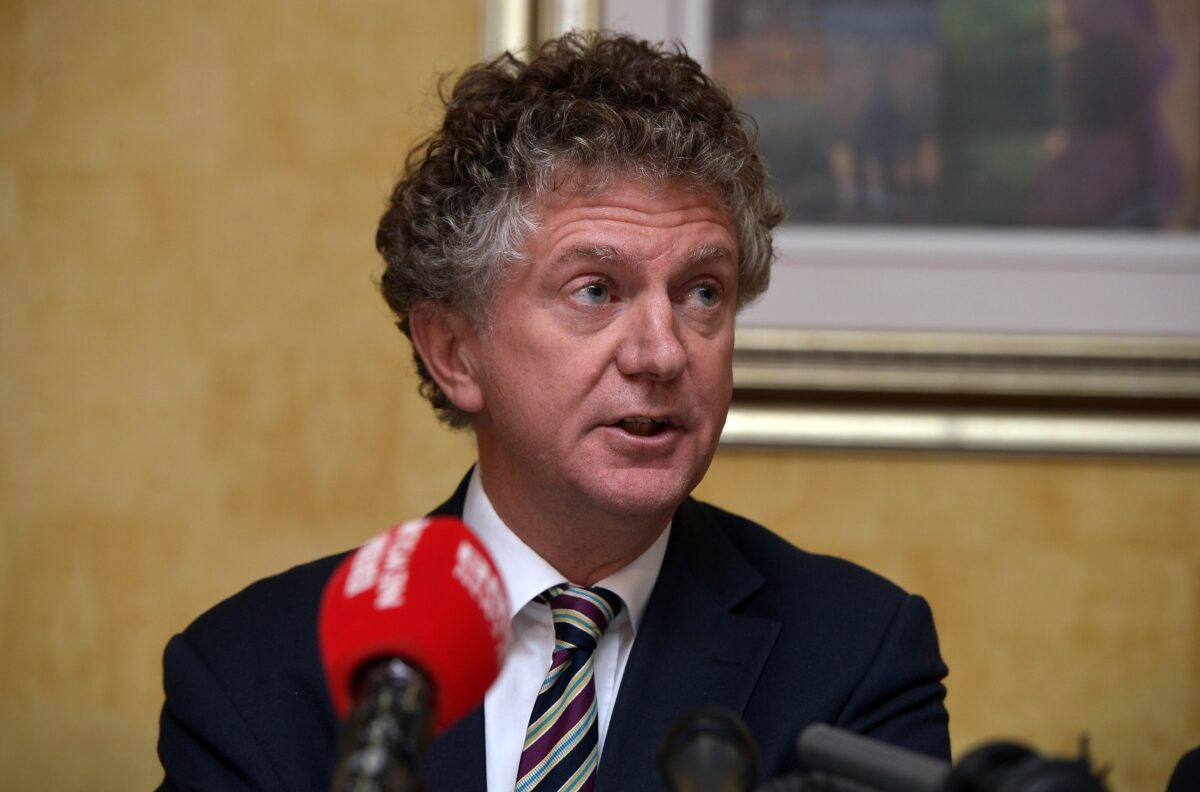Jonathan Powell in global spotlight: From Israel hostage hero to China spy case controversy — what to know

Powell is a veteran British diplomat, negotiator, and expert in conflict resolution with over 35 years of experience. Image Credit: Charles McQuillan/Getty Images
As global attention shifts to the delicate intersection of diplomacy and national security, Jonathan Powell, the UK’s National Security Adviser, finds himself at the center of two unfolding international stories, one marked by praise from Israel and another shadowed by political scrutiny in Britain.
Steve Witkoff Credits Powell in Israel Hostage Release Efforts
US Special Envoy for the Middle East, Steve Witkoff, publicly thanked the UK and specifically Jonathan Powell for their “tireless efforts” in coordinating the release of Israeli hostages held by Hamas. Speaking at Hostages Square in Tel Aviv alongside Jared Kushner and Ivanka Trump, Witkoff described Powell’s input as “incredible” and “vital to this historic day.”
Witkoff’s acknowledgment drew global attention to the behind-the-scenes diplomatic maneuvers linking Washington, London, and Jerusalem. His message on X (formerly Twitter) read:
“I want to recognize the incredible input and tireless efforts of National Security Adviser Jonathan Powell.”
This statement comes amid heightened geopolitical tension and increased scrutiny of the UK’s evolving role in Middle Eastern diplomacy.
READ ALSO
7 hostages freed in Gaza-Israel ceasefire deal — What’s next for the remaining captives?
Spy Case Fallout: Powell Under Fire Over Dropped China Prosecution
Back in London, Powell’s name has surfaced in controversy following the abandonment of a high-profile espionage case involving two British men accused of spying for China.
According to reports, the Crown Prosecution Service (CPS) dropped the case after the government declined to classify Beijing as an enemy, a requirement under the Official Secrets Act for pursuing such charges.
Education Secretary Bridget Phillipson clarified that Powell had “no involvement in the substance or evidence” of the case, insisting that Prime Minister Keir Starmer maintained “full confidence” in him. However, opposition figures, including Kemi Badenoch, have demanded greater transparency, arguing that the government’s narrative has “shifted repeatedly.”
The dropped prosecution has reignited debate over Labour’s softer stance on China and the strategic implications for UK foreign policy.
Balancing Diplomacy and Security
The dual headlines surrounding Powell, one celebrating his role in hostage diplomacy, the other probing his connection to the China spy controversy, underscore the complex nature of modern global leadership.
For some, he represents the skilled negotiator capable of quiet, meaningful impact on international crises. For others, he embodies the ethical gray zones that accompany high-stakes decision-making in national security.
As one political analyst noted, “Powell’s influence extends far beyond Downing Street, but so does the accountability that comes with it.”
FAQ
1. Who is Jonathan Powell?
Jonathan Powell is the UK’s National Security Adviser, serving under Prime Minister Keir Starmer. He is a seasoned diplomat and former chief of staff to Tony Blair, known for his role in international peace negotiations.
2. What was Jonathan Powell’s role in the Israel hostage release?
US envoy Steve Witkoff credited Powell for his “incredible input” in coordinating efforts between the UK, the US, and Israel to secure the release of hostages held by Hamas, highlighting his behind-the-scenes diplomatic influence.
3. Why is Jonathan Powell being scrutinized in the China spy case?
Powell’s name surfaced after the CPS dropped a major espionage case involving alleged Chinese spies. Critics questioned whether the government’s decision not to classify China as an “enemy” was politically influenced, though officials insist Powell had no direct role.
4. Did Jonathan Powell influence the UK’s stance on China?
While Powell helped draft parts of the UK’s updated National Security Strategy, which labeled China a “geostrategic challenge” instead of a threat, ministers maintain that policy direction came from the government as a whole.
5. What did Bridget Phillipson say about Powell?
Education Secretary Bridget Phillipson stated that Powell had “no role in the substance or evidence” of the China case and confirmed that the Prime Minister retains full confidence in his leadership.
6. What has been the reaction to Steve Witkoff’s praise?
Witkoff’s acknowledgment of Powell during the Tel Aviv rally was met with appreciation from some UK officials but also criticism from commentators who believe the UK should clarify its diplomatic priorities amid ongoing controversies.
7. How does this affect the UK’s foreign policy image?
The dual narratives, praise abroad, pressure at home, reflect the UK’s delicate balancing act between security, diplomacy, and transparency. Analysts believe Powell’s case may shape future debates on foreign policy accountability.

